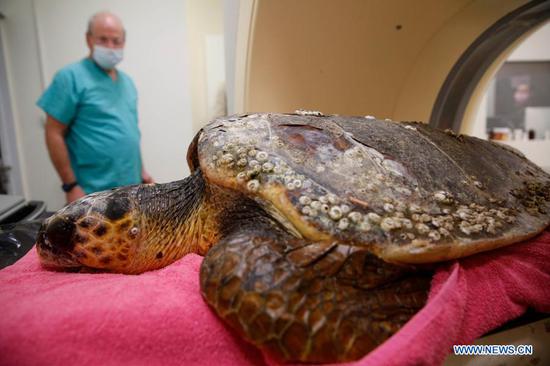Former president Donald Trump's impeachment trial on allegations that he incited the mob that stormed the U.S. Capitol on Jan 6 is scheduled to start in the Senate on Tuesday.
It is unclear how long the trial will last, but what is clear is that as the trial opens, Democrats don't have the needed number of Republicans to join them to convict Trump. It would take a two-thirds supermajority of the 100-member Senate, or 67 votes, to convict him. That means 48 Democrats, two independents and 17 Republicans would need to vote in favor.
But on a Jan 27 motion to declare the trial unconstitutional, only five Republicans voted with Senate Democrats to defeat it. After the vote, many Republicans indicated Trump's acquittal was a foregone conclusion.
Republican Senator Pat Toomey of Pennsylvania was one of those five Republicans. He said Sunday that it's "very unlikely" the Senate will vote to convict Trump, noting the Jan 27 motion.
Toomey said that he stands by his previous comment that Trump "committed impeachable offenses", but he stressed that he would listen to both sides of the trial before voting.
Republican senators Rand Paul of Kentucky, Roger Wicker of Mississippi and Lindsey Graham of South Carolina all said Sunday that they don't think Trump should be convicted.
If Trump were convicted, Democrats then would seek a Senate vote on barring him from holding public office again. That would take a simple majority.
Trump's first impeachment trial in 2020, in which he was acquitted on charges that he abused power by pressuring Ukraine to investigate now-President Joe Biden, lasted almost three weeks.
Democrats want enough time to make their case, including showing videos of the Capitol riot, but while the trial is underway, the Senate can't do other business. That would mean a delay in the upper chamber for confirming Biden's Cabinet nominees and moving forward with his legislative priorities, especially his $1.9 trillion COVID-19 relief package.
Trump's lawyers have argued that the trial is unconstitutional because he is no longer in office. Democrats and many legal scholars disagree.
Trump's legal team has denied that he "incited the crowd to engage in destructive behavior" and has said a statement Trump made during his speech to supporters near the White House — "If you don't fight like hell, you're not going to have a country anymore" — had nothing to do with the storming of the Capitol. They also said that his comments were protected by the right of free speech under the First Amendment.
In their 80-page brief submitted to the Senate last week, House Democrat impeachment managers dismissed that the trial was unconstitutional and said that the trial must go ahead to protect democracy and deter future presidents from provoking violence.
They argued that there should not be a "January exception" for presidents who commit impeachable offenses just before they leave office. The House impeached Trump on Jan 13 while he was still president, seven days before Biden's inauguration on Jan 20.
"You cannot go forward until you have justice," House Speaker Nancy Pelosi said last week. "If we were not to follow up with this, we might as well remove any penalty from the Constitution of impeachment."
Last week, the House's lead impeachment manager, Maryland Representative Jamie Raskin sent a letter to Trump's legal team asking that he testify under oath and submit to cross-examination either before or during the trial.
Trump lawyer Bruce Castor quickly responded, saying Trump wouldn't testify and called the request a "publicity stunt in order to make up for the weakness of the House managers' case"
Trump faces a single article of impeachment that accuses him of incitement of insurrection for the riot which left five people dead, including a Capitol Police officer.


















































